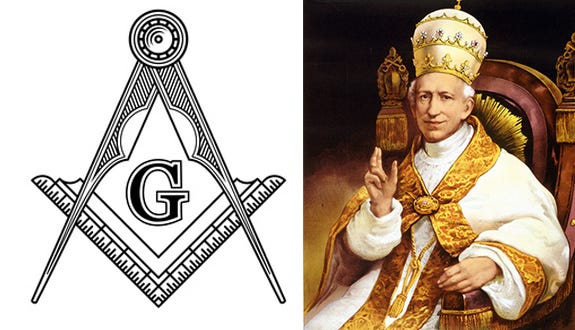Understanding the Catholic Church's Stance on Freemasonry: A Simplified Analysis
Reminder: This is my own personal view, not that or representative of any Lodge, Grand Lodge or Masonic Body of any kind.
The Catholic Church have just reaffirmed its ban on Catholics becoming Freemasons, stating irreconcilable differences between the two. This decision naturally raises questions: What exactly are these differences and are the Church's interpretations of Freemasonry accurate?
Let's simplify this complex issue.
Firstly, the Church argues that Freemasonry promotes a form of naturalistic religion, accepting all religions equally, which they term "indifferentism." This term implies a lack of preference for any particular faith, which contradicts the Catholic view of its faith as the singular true religion. However, this interpretation is miscalculated when considering Freemasonry's actual stance.
Freemasonry doesn't claim any authority on religious matters. It's like a parking ranger who focuses on parking issues and leaves other law enforcement to the police. The ceremonies and practices of the Craft tells Masons to seek spiritual guidance from their respective faith.
Freemasonry is not indifferent to the Church or any religious institution,
but rather it’s not concerning itself with something it has no authority on.
Moreover, the Church's perspective that Freemasonry aims to undermine it seems grossly exaggerated. Unlike the centralised structure of the Catholic Church under the Pope, Freemasonry operates through independent Grand Lodges with no global governing body. The idea that these loosely connected groups could unify with the intent of dismantling a powerful institution like the Catholic Church, with an estimated worth $73bn seems far-fetched.
If we turn back the pages in history, King Philip IV of France was deeply indebted to The Knights Templar, he pressured Pope Clement V into having many Templar Knights arrested, tortured into false confessions of heresy and then burned them at the stake (on Friday 13th October 1307)— with many more executed in the aftermath.
Should we also mention the Church being the catalyst of the Crusades? These lasted for hundreds of year and increased the authority of the Pope and helped the Catholic Church amass significant wealth, much remains un-valued in the Vatican archives. To put it simply, the Crusades were military action by the Church to gain power, and conquer any opposition.
The ban on Freemasonry today, is just a modern crusade.
Another concern of the Church is the secrecy within Freemasonry and the so-called "self-mutilation" penalties. Both of these aspects are misunderstood. The secretive nature is more about tradition and respect for internal processes, not about hiding nefarious plans— meanwhile try asking the Catholic Church about what’s deep in the Vatican archives and you will see who has real secrets to hide.
The dramatic penalties are more colloquial and symbolic, not literal, a point that is conveniently overlooked. Have you ever made a “pinky promise”, even as a child? It’s exactly the same. Although, what’s also quite interesting is the Catholic Church doesn’t consider the similar passages in the Bible as indifferent:
2 Maccabees 6:18-21
There was an elderly and highly respected teacher of the Law by the name of Eleazar, whose mouth was being forced open to make him eat pork. But he preferred an honourable death rather than a life of disgrace. So he spat out the meat and went willingly to the place of torture, showing how people should have courage to refuse unclean food, even if it costs them their lives.
2 Maccabees 14:41-46
When the troops were about to capture the tower and were forcing the door of the courtyard, they ordered that fire be brought and the doors burned. Being surrounded, Razis fell upon his own sword, preferring to die nobly rather than to fall into the hands of sinners and suffer outrages unworthy of his noble birth.
1 Corinthians 9:15
But I have made no use of any of these rights, nor am I writing this so that they may be applied in my case. Indeed, I would rather die than that—no one will deprive me of my ground for boasting!
The supposed irreconcilable differences between the Catholic Church and Freemasonry stem from complete misinterpretation. Freemasonry encourages personal spiritual growth and respect for individual religious beliefs, referring the Mason to his authority on this matter- which isn't contrary to religious faith but rather complementary.
When I became a Mason, I wasn’t religious, rather agnostic. With the ceremonies continually reinforcing me to pursue faith, I went to Church and was brought to faith.
The underlying issue is whether the Church's stance reflects any understanding of Freemasonry or a surface-level misinterpretation based on political intentions.
Any good Man of any Faith or who believes in a Supreme being is welcome in Freemasonry.
Reminder:
This is my own personal view, not that or representative of any Lodge, Grand Lodge or Masonic Body of any kind.




